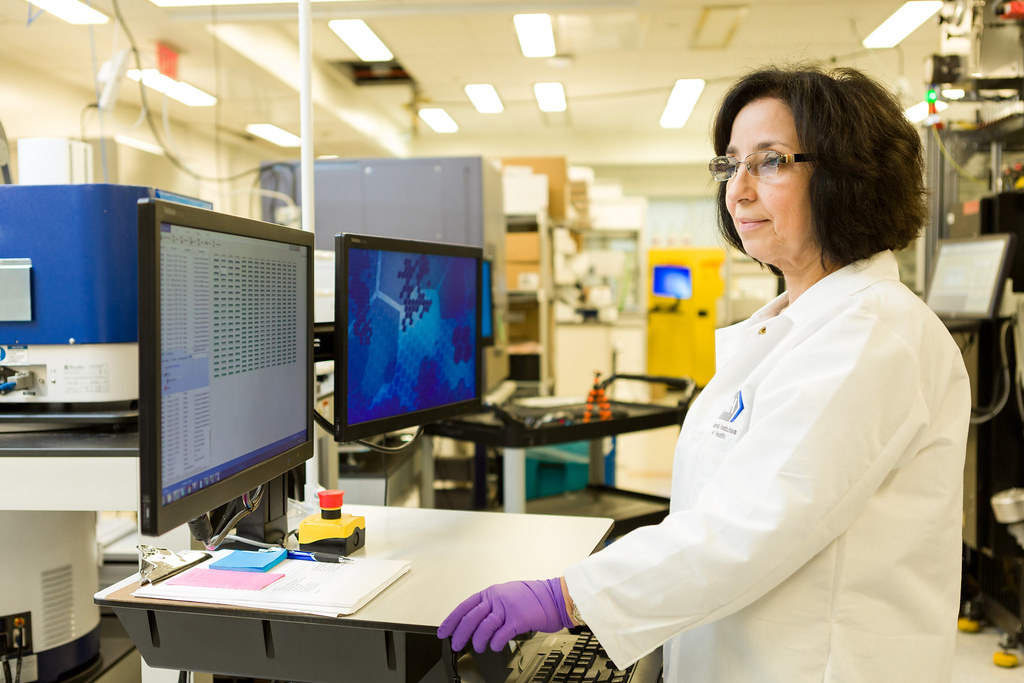
Three ways the chemicals & materials industry can benefit from digital transformation
Submitted by:
Andrew Warmington
Dr Nina Kaun, product director, chemical industry solutions, at Elsevier, looks at how the Covid-19 pandemic could help to drive digitalisation
While many industries have taken advantage of technology developments in recent years, the chemicals and materials sector has been slower to digitalise. This attitude is now changing: 87% of chemicals and materials executives believe companies will ‘lose their edge’ or ‘face extinction’ unless they embrace digital transformation, including adopting more automation and applying artificial intelligence (AI) to some processes.
At the same time, the global impact from the Covid-19 pandemic is presenting both challenges and opportunities to the sector. From the huge demand for chemicals and reagents for Covid-19 tests, to industry-wide resource shortages as manufacturers limit production to cope with the spread of the virus, chemicals and materials companies have a chance to show just how innovative they can be. This will be difficult to achieve, however, without digitalisation across all operations, from early R&D, through to manufacturing and production.
Improving processes, adding value
Digital transformation is often portrayed in terms of the broad benefits it can deliver, such as improved efficiency and cost-effectiveness, but, in reality, making these gains is a tough prospect. Business leaders in chemicals and materials companies should begin by looking at specific areas where digitalisation has the potential to significantly improve their operations. In our experience, the following three areas can be optimised extensively through digitalisation:
* Predictive development: According to 84% of chemicals and materials CEOs, digital transformation can bring significant efficiencies to the development process, reducing costs while uncovering new income streams. The use of algorithms can help companies to anticipate their future needs, such as the materials or tools/equipment required for the next phase of development. This can be extended to ensure ‘quality by design’, using sensor data from devices connected to the Internet of Things to cross-check any materials against the requirements for the specific outcome
* Better decision-making: Given the volume of data chemicals and materials organisations have the potential to access today – including everything from published scientific literature to data gathered from smart, connected devices – humans need a helping hand. Researchers are simply unable to review and process such volumes of data at speed, and there is a risk that important data or insights might be missed. AI and automation can help researchers to analyse vast amounts of data rapidly, allowing them to make confident and accurate decisions and achieve productivity and efficiency gains that the World Economic Forum estimates could reach $280 billion/year
* Managing customer relationships: Digital transformation provides several opportunities when it comes to customer relationships in the chemicals and materials ecosystem. Embedding digital processes allows organisations and manufacturers to help customers create better products and add value to their services. This could include ensuring development is commercially feasible and that there is sufficient market need, to finding the best suppliers in order to improve supply chains or offer the most competitive services and prices. It can also be the first step in diversifying their business, so chemicals and materials companies can offer a more complete service to customers, thus helping with retention.
Breaking down silos
To realise the value of digitalisation in these three areas, and indeed beyond, chemicals and materials businesses need to think holistically about their transformation. Many departments and lines of business will have already spent significant resources on building their own digital ‘tools’, ranging in sophistication from a manually updated Excel spreadsheet, to building an algorithm for a specific business or departmental process. Because of this, it can often be a challenge to see the value in investing in more new platforms or systems or attempting further digital initiatives.
The issue with this current approach is that transformation is taking place in silos, meaning that potentially useful data are also confined to these areas and have extremely limited value to the whole organisation. To counter this, digital transformation needs to be considered a company-wide undertaking. The tools in use must be consistent, allowing data to move easily between different business areas and to be compared with other sources, both internal and external.
The key to making this type of digital transformation work is to invest in specialist solutions specifically designed for the industry. Using a patchwork of tools may lack the specific functionality needed or decrease efficiency in workflows. The organisations that do successfully digitalise will be able to remain competitive and help to future-proof their business – an imperative for all, given the global challenges Covid-19 has raised for every industry.
Contact:
Nina Kaun
Director, Product Management, Chemicals Industry Solutions
Elsevier
www.elsevier.com
